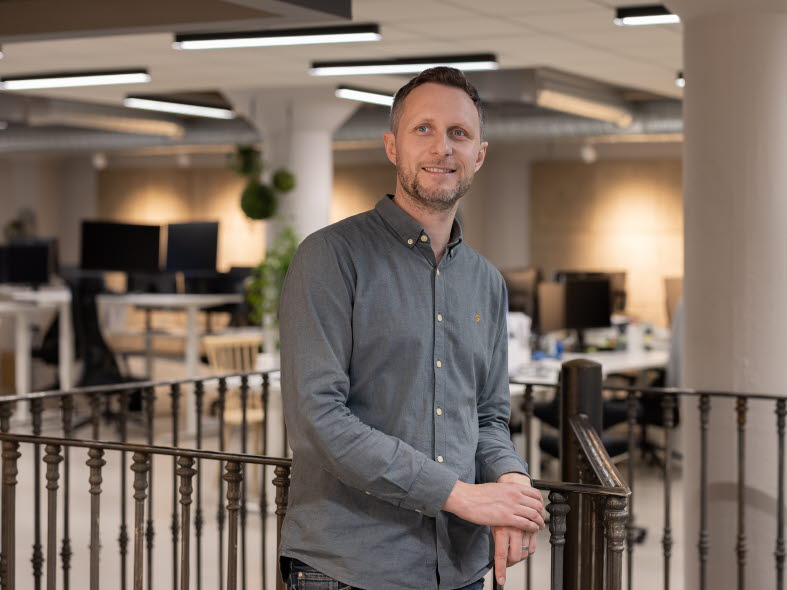“Initially, we turned to the energy companies, but these mainly saw our solution as a ‘nice to have’ and weren’t willing to spend much on it. After a while, however, Joel realised that real estate companies should have the strongest incentives for energy monitoring. Since 40 per cent of all energy is consumed by buildings, there are great opportunities to save both money and the environment within this field. In addition, we discovered that one of the big pain points in this industry was the lack of access to energy data.”
And with that insight, things took off for Metry – which has now moved from the university halls, via a shared office space, on to its own premises in Gullbergsvass. Several major players in the real estate industry are also on the client list, among them Vasakronan, Castellum and Rikshem.
The stars have aligned for companies focusing energy and sustainability
To be able to give a more detailed description of Metry's services, we need to get a little technical and talk about energy measurement. Often there are namely several different types of measurement points in larger properties.
Firstly, there’s the main measurement, which registers all energy that is consumed and that the electricity companies base their invoices on. Secondly, there can also be various sub-meters, which the property owner has chosen to install. These measure the same energy once again – but more specifically – for example, the consumption of the elevators in a building. Finally, if energy is also produced within the property – as with solar cells – this comes with additional measurement points.
“What we offer is a platform where we retrieve data from the customer's energy company – through scraping, files, APIs or invoices. We also add the various sub-metering points. Metry is sort of like a bookkeeping system for energy data”, Magnus Hornef says.
When asked what actual actions improved energy follow-up can result in, he answers:
“One could say that the data we gather helps our customers detect possible energy leakage, so our partners can help them save energy. There are several improvements that may become relevant for them, such as changing windows, installing solar cells, upgrading their ventilation systems, or looking into if the main part of the heating could be conducted at different hours.”
The legal requirements for energy reporting, as laid out by the European Union’s new sustainability taxonomy, has also generated an influx of new customers for Metry.
“Many Swedish companies are at the forefront of energy monitoring, and in general Swedish properties don’t consume many kilowatt hours, compared to Europe as a whole. At the same time, companies are now getting in touch to get help with data for their sustainability reporting. This is yet another signal that our services are needed – that the stars have aligned for companies focusing on energy and sustainability.”
Big steps towards growth and new markets
In 2022, SEB Greentech Venture Capital invested in Metry, and since then the company has been focusing intensely on growth.
“The risk capital has given us an opportunity to broaden our competence and strengthen our networks. This is crucial when you, like us, want to grow on new markets. We also see new business opportunities in being able to collaborate with the banking sector, for example by offering credible data on properties' energy consumption in connection with lending”, Magnus Hornef says.
Metry currently has over 200 customers in ten different countries. But, given the growth ambitions, where does Magnus see the company in ten years from now?
“By then we are the industry leader throughout Europe and the obvious choice for collecting energy data.”
It seems you really like what you do – was it always obvious that you would start a company, or have you ever considered a career as an employee?
“I have always been interested in technology and data and have had many ideas about what could be done. When I was 17 or 18 years old, I had actually already started developing and selling various computer programmes. When I think about it, I've probably never been employed, apart from a gig as an advertising sales rep, or so. Even that ended up with me building the company’s booking system for ads”, Magnus Hornef concludes with a laughter.


